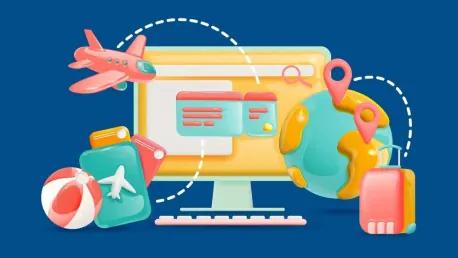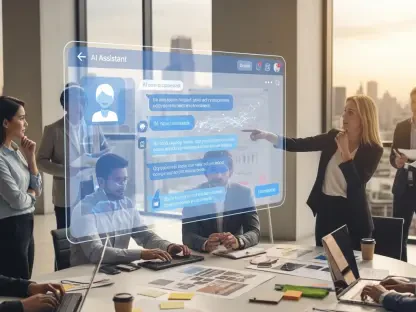The travel industry is poised for massive growth, and staying ahead of the competition requires innovative and personalized marketing strategies. Personalization is not just a buzzword; it’s a critical approach to understanding and catering to the needs of modern travelers. Leveraging customer data and advanced technologies, businesses can create tailored experiences that boost engagement and sales.
Understanding Your Customers
Data-Driven Customer Profiling
Creating effective customer profiles goes beyond basic demographics. Travel businesses need to delve into psychographics and behavioral patterns to truly understand what drives their customers. This comprehensive view includes identifying customer pain points and desires. The depth of this understanding shapes the core of all marketing efforts, ensuring they resonate on a deeper, more personal level. Psychographics involve grasping travelers’ lifestyle preferences, values, and opinions. Such insights offer valuable perspectives on why customers make specific travel choices, influencing their purchasing decisions and loyalty.
Identifying behavioral patterns further refines this understanding. Observing how individuals interact with previous travel experiences, from their booking habits to their preferred activities, adds a pragmatic layer of data. By synthesizing demographics with psychographic and behavioral insights, businesses can build robust customer profiles that encapsulate motivations and expectations. These detailed personas form the backbone of personalized marketing strategies, allowing companies to curate experiences that genuinely connect with their audience.
Importance of Comprehensive Personas
Detailed personas help businesses tailor their marketing efforts more effectively. By combining demographic information with behavioral insights, companies gain a deeper understanding of customer motivations, leading to more targeted and successful campaigns. Comprehensive personas represent a mosaic of attributes and tendencies unique to specific traveler types, hence enabling marketers to craft highly relevant messages. This depth of information ensures marketing efforts are not just scattered attempts but are focused, strategic endeavors that yield higher engagement rates.
Personas effectively bridge the gap between raw data and actionable strategies. Companies that rigorously develop these personas can anticipate customer needs, personalize marketing content, and streamline communication channels. Expectations are managed more effectively, leading to greater satisfaction and loyalty. The more nuanced and detailed the persona, the more precise the targeting, reducing wasted marketing expenditure and increasing return on investment. Businesses can then align their product offerings, promotions, and overall customer journey design with the distinct preferences of each persona.
Segmentation Techniques
Traditional vs. Advanced Segmentation
While traditional segmentation methods include geographic and demographic data, advanced techniques incorporate psychographics and behavior. This enables businesses to create micro-segments for highly personalized marketing. Traditional methods rely on broad categories like age, gender, and location, which, although useful, often lack the granularity needed for precise targeting. Conversely, advanced segmentation techniques dive deeper into individual preferences, lifestyle choices, and online behavior. This multidimensional approach captures the diverse facets of the modern traveler, allowing for finely-tuned marketing strategies.
By leveraging data from various touchpoints, companies can move beyond surface-level understanding and unravel the intricate layers of customer identity. Segmenting travelers based on their interests, travel frequency, and purchasing power equips businesses with the ability to customize offerings efficiently. Advanced segmentation facilitates dynamic marketing campaigns that change in real-time according to emerging trends and customer feedback. It’s a responsive, adaptive process that continuously evolves, ensuring the marketing message remains relevant and impactful.
Benefits of Micro-Segmentation
Micro-segmentation allows travel businesses to identify unique traveler types and customize their offerings accordingly. This leads to higher engagement and conversion rates, as marketing messages resonate more deeply with each customer segment. The practice involves breaking down broad market segments into smaller, more specific groups, each with its unique characteristics and preferences. For example, luxury travelers, adventure seekers, family vacationers, and solo explorers all have distinct expectations and requirements.
Tailoring marketing messages and experiences to these micro-segments significantly enhances the effectiveness of advertising campaigns. Customers feel understood and valued, fostering trust and loyalty. With hyper-personalized promotions, businesses can precisely address the needs and desires of each segment, converting interest into bookings. Furthermore, micro-segmentation enhances the efficiency of resource allocation. Marketing budgets can be directed toward the most promising segments, optimizing return on investment. Companies can swiftly pivot strategies based on real-time engagement metrics, continually refining their approach for maximum impact.
AI-Powered Personalization
Utilizing AI for Recommendations
AI systems analyze vast amounts of customer data to provide personalized recommendations. These systems improve customer satisfaction by saving time and introducing travelers to tailored options they might otherwise overlook. Using algorithms that learn and adapt from data, AI can predict customer preferences with remarkable accuracy. This capability transforms the travel planning experience, making it more intuitive and enjoyable by suggesting destinations, accommodations, and activities that align with the specific interests and behaviors of each traveler.
The sophistication of AI-driven recommendation engines lies in their ability to continuously refine their suggestions through feedback loops. As customers interact with recommendations, the system gauges their responses and adjusts accordingly. This dynamic process ensures the recommendations become increasingly accurate over time. Additionally, AI can integrate external factors such as seasonal trends, current events, and customer reviews, offering a holistic approach to personalization. This nuanced understanding allows businesses to position their offerings in ways that resonate deeply with individual preferences, enhancing engagement and fostering loyalty.
Addressing Challenges in AI Implementation
While AI offers significant benefits, it’s essential to address challenges like the “cold start problem.” Combining AI with human expertise creates a balanced approach, ensuring personalized recommendations are accurate and effective. The cold start problem occurs when there is insufficient historical data to generate reliable recommendations. To mitigate this, businesses can employ hybrid models that integrate AI insights with expert knowledge.
Human intuition and experience can fill the gaps left by data limitations, ensuring the initial recommendations are robust and relevant. Another challenge lies in ensuring customer privacy and data security. AI systems rely on extensive data collection, which raises concerns about how this data is used and protected. Companies must implement strict data governance policies and transparent practices to maintain customer trust. Ethical considerations around data usage must be front and center, ensuring compliance with regulations while respecting individual privacy rights. Combining AI with a human touch also enhances the customer service experience. While AI can handle routine inquiries and provide quick solutions, complex or emotionally nuanced situations often still require human intervention.
Personalized Content Marketing
Crafting Tailored Content
Customizing content for different traveler segments is crucial for converting interest into bookings. Tailored content aligns with specific desires and motivations, making marketing efforts more impactful. By leveraging insights gained from comprehensive customer profiling and segmentation, travel businesses can create highly relevant content that resonates with the unique preferences of each segment. This approach ensures that marketing efforts are not perceived as generic or impersonal but rather as insightful and engaging, fostering a stronger connection with potential customers.
The power of customized content lies in its ability to speak directly to the individual’s aspirations and concerns. Whether through blog posts, travel guides, email campaigns, or social media updates, the content must reflect the distinct qualities of each segment. Avid adventure travelers might be captivated by thrilling escapades and extreme sports activities, whereas luxury travelers may prefer content that highlights exclusive resorts and premium services. Visual elements, tone, and messaging must be meticulously aligned with segment-specific preferences to capture and retain the audience’s attention.
Storytelling and Video Marketing
Storytelling and video marketing are powerful tools for building emotional connections with potential travelers. These mediums effectively inspire and engage audiences, turning interest into action. Stories humanize the travel experience, making it relatable and memorable by allowing potential travelers to envision themselves in the narrative. Effective storytelling fosters a deeper emotional connection, aligning the brand with the values and dreams of the audience. This emotional resonance can be a decisive factor in converting a casual interest into a committed booking.
Video marketing amplifies this impact by offering dynamic, immersive content that captures attention quickly and holds it. Videos can showcase the beauty of destinations, the warmth of local cultures, and the excitement of various activities in ways that static images and text cannot. Engaging video content leverages sound, motion, and storytelling to create a rich sensory experience, making the message more compelling. Additionally, short-form videos on platforms like Instagram and TikTok, as well as longer-form content on YouTube, allow brands to reach different audience segments effectively.
Leveraging Technology
AI-Powered Tools for Travel Planning
Smart chatbots and recommendation engines personalize every aspect of travel planning, from bookings to on-trip assistance. These tools enhance the customer experience by providing real-time, tailored interactions. Chatbots, powered by AI, offer quick, reliable assistance, handling inquiries, providing recommendations, and even managing bookings without human intervention. They operate around the clock, ensuring assistance is always available, which is particularly valuable for global travelers across different time zones.
Recommendation engines analyze customer preferences, browsing history, and past behaviors to suggest relevant options, making the planning process more efficient and enjoyable. These AI-powered tools not only simplify travel planning but also enhance its precision. They can anticipate needs and preferences, offering a highly personalized experience. Furthermore, these systems can dynamically update, incorporating real-time data such as weather conditions, local events, and travel advisories, ensuring recommendations are timely and relevant. Integrating AI tools into travel services enables businesses to offer a seamless, cohesive journey, where each interaction feels personalized and intuitive.
Immersive Experiences with VR and Predictive Analytics
Virtual reality offers potential travelers immersive previews of destinations, enhancing their excitement and likelihood of booking. Predictive analytics anticipate customer needs, ensuring a seamless and personalized travel experience. VR technology allows users to explore locations, accommodations, and activities in a 360-degree virtual environment, providing a vivid sense of what to expect. This immersive experience can significantly influence decision-making, as potential travelers can “try before they buy,” reducing uncertainty and increasing confidence in their choices.
Predictive analytics further refine personalization by analyzing vast datasets to forecast future behaviors and preferences. By examining patterns in customer data, businesses can anticipate needs, such as preferred travel times, accommodation types, and leisure activities, before the customer even expresses them. This proactive approach ensures that marketing messages and offers are not just reactive but pre-emptive, creating a sense of personalized foresight. Combining VR and predictive analytics creates a powerful synergistic effect, enhancing the travel planning experience and increasing overall satisfaction.
Building Long-Term Customer Relationships
Loyalty Programs and Personalized Offers
Dynamic loyalty programs, tailored to individual preferences, foster long-term customer relationships and repeat bookings. Personalized offers keep customers engaged and encourage ongoing interactions with the brand. Modern loyalty programs go beyond the standard point-based systems, incorporating elements that resonate with the emotional and practical needs of customers. By offering personalized rewards, exclusive access, and bespoke packages, businesses can enhance the value proposition, making loyal customers feel special and appreciated.
Personalized offers based on individual travel history and preferences can significantly boost engagement. For instance, a luxury traveler might receive a special promotion for a high-end resort, while a budget traveler might be offered discounts on hostels or budget-friendly experiences. This level of specificity ensures that offers are highly relevant, increasing the likelihood of repeat bookings. Furthermore, dynamic loyalty programs can leverage AI and machine learning to continuously update and improve offers based on evolving customer preferences and behaviors, ensuring marketing efforts remain effective and engaging over time.
The Role of Feedback in Personalization
The travel industry is set for significant expansion, and staying competitive demands innovative and personalized marketing tactics. Personalization goes beyond being a trending term; it is a vital approach to truly understanding and meeting the unique needs of today’s travelers. By harnessing customer data along with advanced technology, businesses can develop customized experiences that increase both engagement and sales.
Personalized marketing in the travel sector involves analyzing customer preferences, behaviors, and past interactions. This enables businesses to offer tailored recommendations, special deals, and personalized communication, creating a more engaging experience for the traveler. Leveraging technologies like AI and machine learning, companies can predict customer needs and preferences, making relevant suggestions and providing seamless service.
Moreover, personalizing the travel experience helps in building stronger relationships with customers. It boosts loyalty as travelers appreciate the effort put into tailoring their journey. By implementing such strategies, travel businesses not only enhance the customer experience but also drive revenue and lead the market.
In essence, personalization in marketing is not optional but a necessity for travel companies aiming to stay relevant and outperform their competitors. As the industry continues to grow, those who adopt and integrate personalized strategies will be better positioned to attract, engage, and retain customers, ensuring sustained success in an evolving market.









